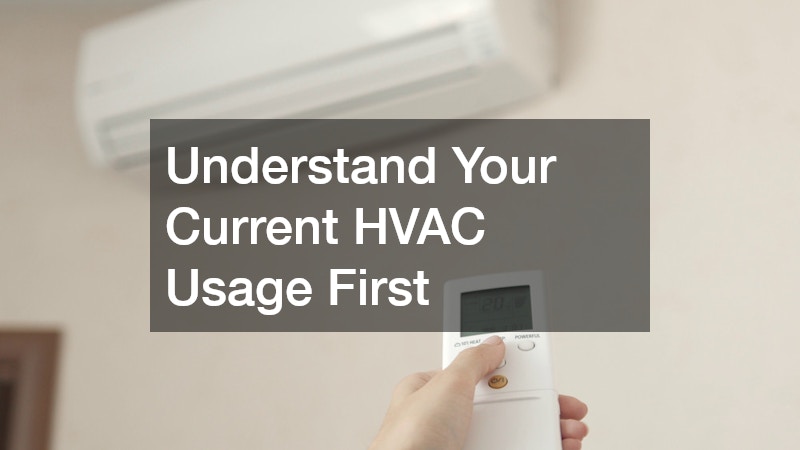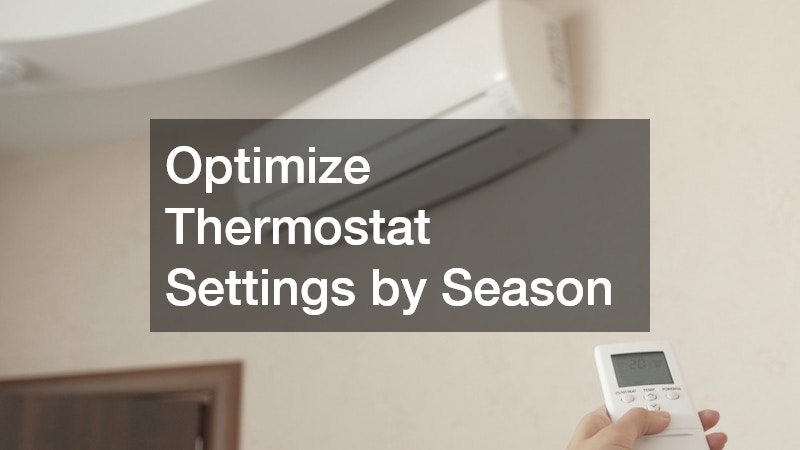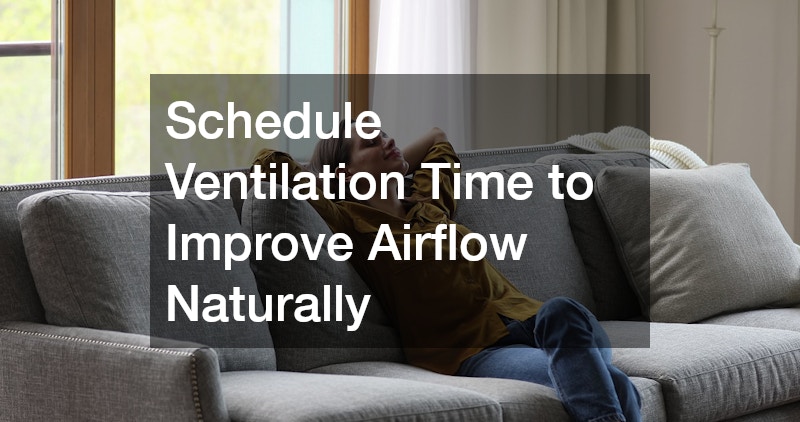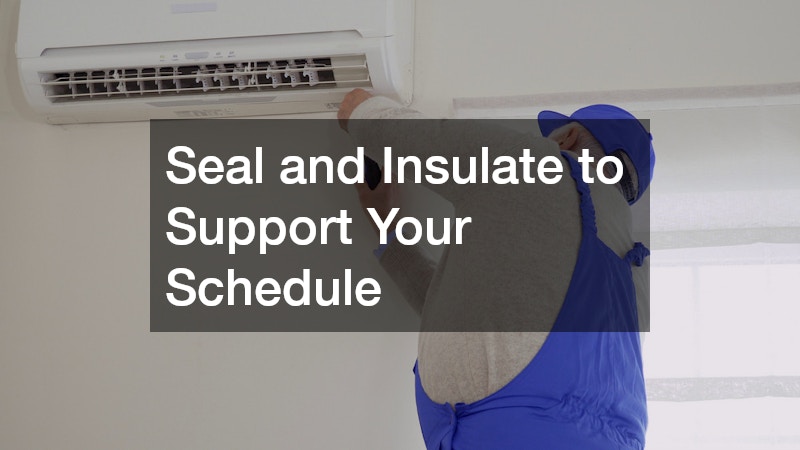The importance of maintaining an efficient heating, ventilation, and air conditioning (HVAC) system cannot be overstated, especially when it comes to comfort and cost savings. With energy prices on the rise, optimizing your HVAC system through an effective HVAC schedule is crucial for reducing your energy consumption and prolonging the lifespan of your equipment. This article will guide you through various methods to enhance your system’s efficiency, from understanding your current HVAC usage to aligning your schedule with renewable energy. Whether you’re dealing with an HVAC company for installations or a local AC company for repairs, this guide will ensure you’re well-informed and prepared to make the most of your HVAC system.
Understand Your Current HVAC Usage First

Before you make any changes to your HVAC system, it’s important to evaluate your current usage patterns. Start by examining how often your HVAC system runs and the duration of each cycle. An HVAC company can conduct a thorough inspection to provide insights into your system’s performance metrics.
During this process, it’s not just about identifying issues but also understanding your HVAC schedule’s efficiency. Regular reviews help uncover small problems before they escalate into costly HV AC repairs. This proactive approach allows for timely adjustments to your HVAC routine, maximizing both energy savings and comfort levels within your home.
Additionally, consider your family’s daily routines and how they correlate with your HVAC system’s operation. An aligned HVAC routine can result in significant energy savings and a more comfortable home environment. Don’t hesitate to consult with HVAC companies to finetune your existing setup and optimize your system’s operation.
Schedule Seasonal Tune-Ups for Peak Efficiency
Seasonal tune-ups are critical for maintaining your HVAC system’s efficiency and longevity. Scheduling HVAC maintenance at the start of each major season ensures that your system is both clean and well-adjusted. Many HVAC services offer seasonal packages that include inspections and minor adjustments to keep your system running at peak performance.
By adhering to a seasonal maintenance HVAC routine, you can avoid unexpected breakdowns and the need for emergency HVAC repairs. During these checkups, technicians can replace worn-out components and perform necessary adjustments, keeping your energy consumption in check. These inspections generally cover all aspects of your HVAC system, ensuring each component works in harmony.
A comprehensive agreement with your air conditioning and heating company can further streamline these seasonal checkups. These partnerships often come with added perks, such as priority scheduling and discounted rates on parts and labor, facilitating a hassle-free HVAC schedule. Partnering with trusted HVAC professionals is an investment that pays dividends in terms of both energy efficiency and system reliability.
Clean or Replace Air Filters Monthly
One of the simplest yet most effective ways to keep your HVAC system efficient is by regularly cleaning or replacing air filters. Dirty filters restrict airflow, causing your system to work harder than necessary, leading to increased energy usage. As a general rule, air filters should be checked monthly as part of your HVAC schedule.
An HVAC company often offers subscription services for air filter replacements, ensuring you never miss a change. Keeping up with this task enhances air quality in your home and prolongs your system’s life. This simple action can significantly reduce the risk of needing costly AC repairs down the line.
Different systems and homes have various air quality needs, so consult with HVAC services to determine the best filter type and replacement frequency for your specific situation. By incorporating these routine checks into your monthly HVAC routine, you can prevent airflow issues and maintain an optimally functioning system.
Optimize Thermostat Settings by Season

Adjusting your thermostat settings according to the seasons is another method to optimize your HVAC schedule. In the summer, set your thermostat higher when you’re away and cooler when at home. Conversely, in the winter, lower your settings during away hours and at night to conserve energy.
An HVAC company can install programmable thermostats to automatically adjust temperatures based on your specific lifestyle and seasonal requirements. This control reduces energy consumption while ensuring that your home remains comfortable year-round. Moreover, learning to use these settings effectively can lead to noticeable savings on your utility bills.
For optimum results, align your thermostat settings with your family’s habits and preferences. By doing so, you not only enhance your HVAC routine but also eliminate unnecessary heating or cooling. This strategy makes your system more responsive to personal needs and environmental changes.
Use a Smart Thermostat for Smarter Scheduling
Smart thermostats are an excellent investment for anyone seeking to refine their HVAC schedule. These intelligent devices learn your habits and preferences, automatically adjusting to meet your comfort needs while minimizing energy use. They provide real-time insights and analytics to help you understand your energy consumption patterns better.
These devices can be integrated with other smart home systems, offering convenience and efficiency. With a smartphone app, you can control your home’s climate from anywhere, ensuring your system only runs when necessary. This feature is particularly beneficial when you’re traveling and want to align your HVAC routine with your changing plans.
Installing a smart thermostat as part of your HVAC routine will simplify the process of scheduling AC repairs and routine maintenance. Its diagnostic features allow HVAC companies to pinpoint issues faster, facilitating prompt resolutions. Embracing this technology is a step toward a more efficient and responsive home environment.
Align HVAC Schedule With Your Family’s Habits
Tailoring your HVAC routine to fit your family’s unique habits and routines can lead to substantial energy savings. Analyze when rooms are occupied and the typical time temperatures need adjustment. A personalized schedule ensures that energy is not wasted on empty rooms.
Collaborate with an air conditioning and heating company to customize your system accordingly. They can provide insights and adjustments tailored to maximize efficiency according to your daily schedule. This level of customization ensures that your system operates only when needed, saving both energy and money.
Consider any specific climate control needs, such as allergies or respiratory issues, which might influence your HVAC routine. Understanding these needs allows you to adjust the system for optimal indoor air quality while minimizing unnecessary operation. This thoughtful approach results in a more comfortable and energy-efficient home.
Schedule Ventilation Time to Improve Airflow Naturally

Scheduling specific times for ventilation can improve airflow naturally and contribute to a healthier indoor environment. This can be as simple as opening windows during the cooler parts of the day to allow fresh air to circulate throughout your home. A local AC company can advise on the best times for natural ventilation based on your home’s design and local climate conditions. Incorporating natural airflow into your HVAC schedule reduces reliance on mechanical ventilation and helps maintain indoor air quality. This practice is particularly beneficial during mild weather conditions.
Additionally, consider using exhaust fans strategically to pull stale air out and bring fresh air in. These simple measures, part of an efficient HVAC routine, enhance air quality and reduce the load on your system. By coordinating these efforts, you promote a more natural and energy-efficient home environment. You can also supplement with whole-house fans or attic ventilators to boost passive cooling during transitional seasons.
Smart sensors can help monitor indoor humidity and oxygen levels, triggering ventilation as needed. This balance between natural and mechanical systems supports both energy savings and healthier living. Over time, these habits contribute to reduced HVAC wear and improved overall system performance.
Integrate Your HVAC Schedule With Renewable Energy Use
As energy costs rise and environmental concerns grow, integrating your HVAC routine with renewable energy sources presents a sustainable solution. Solar panels, geothermal systems, and wind energy are becoming viable options for powering HVAC systems.
By using renewable energy, you not only reduce your carbon footprint but also lower energy bills. An HVAC company specializing in renewable energy integration can evaluate your property and design a system that aligns with your needs. This integration, paired with an effective HVAC routine, maximizes efficiency and reduces dependency on traditional energy sources.
Consider incentives available for renewable energy installations, as these can offset initial costs. Aligning your HVAC routine with these AC installation renewable systems ensures energy is utilized when available, optimizing efficiency. Incorporating renewables is an investment that offers both environmental benefits and long-term savings.
Don’t Cool (or Heat) Empty Rooms
Reducing energy waste by only heating or cooling rooms in use is an effective strategy for enhancing HVAC efficiency. Closing vents in unused rooms and using space heaters or fans in frequently used areas can optimize your system’s performance. An HVAC repair company can assist in zoning your system properly, ensuring optimal airflow where it’s needed most. This targeted approach means less strain on your system and improved overall efficiency. It can be incorporated seamlessly into your existing HVAC schedule.
A proper zoning strategy, informed by your daily routines, can significantly decrease your energy expenses. By adjusting your HVAC routine to service only occupied areas, you conserve resources and keep your home comfortable and efficient. This small change can have a big impact on both comfort and energy savings. Zoning systems can be customized with smart thermostats that control individual areas or floors of your home independently.
For larger homes, or multi-story layouts, this approach can drastically reduce energy consumption. Some modern HVAC systems even allow for remote control via mobile apps, making real-time adjustments easy and convenient. Integrating zoning with a smart schedule ensures that you’re only using energy when and where you truly need it.
Use a Maintenance Log or Digital Reminder System
Keeping track of your HVAC maintenance tasks can be challenging, but a maintenance log or digital reminder system can help keep your HVAC schedule on track. These tools can remind you of filter changes, inspections, and other essential tasks.
Utilizing technology to streamline your HVAC routine ensures that nothing slips through the cracks. HVAC companies often provide digital platforms or apps to help you manage your system’s upkeep. Regular updates and reminders keep you informed about upcoming service needs.
Furthermore, digital systems allow you to store vital information such as past inspections and repair records. This comprehensive log can be invaluable during service appointments or when communicating with HVAC companies. Consistent maintenance tracking is critical for a well-functioning, efficient HVAC system.
Seal and Insulate to Support Your Schedule

Proper sealing and insulation of your home are fundamental in supporting an effective HVAC schedule. These practices prevent drafts and air leakage, allowing your system to work more efficiently and reducing energy waste. A thorough HVAC inspection can identify areas where improvements are needed. By ensuring that your home is well-sealed, you prevent conditioned air from escaping, maximizing your system’s output. Consequently, your HVAC routine becomes more effective, as your system doesn’t need to run as frequently to maintain desired temperatures.
Insulation and sealing improvements can involve various tasks, from applying weatherstripping and caulking to more extensive insulation upgrades. Attic insulation, in particular, plays a crucial role in reducing heating and cooling loss, as up to 25% of a home’s energy loss can occur through the roof. Sealing gaps around windows, doors, ductwork, and electrical outlets can further enhance HVAC performance. Even small leaks can cause significant inefficiencies over time, so regular checks are essential.
Consulting with HVAC services or an energy audit professional can provide tailored solutions to enhance your home’s thermal envelope, fully supporting a streamlined HVAC routine. These upgrades not only improve comfort and air quality but can also result in noticeable savings on your utility bills. Many utility providers offer rebates or incentives for energy-efficient improvements, making these upgrades more affordable. Investing in better insulation and sealing is a smart step toward maximizing the performance and longevity of your HVAC system.
Optimizing your HVAC routine is an ongoing process that involves understanding your system’s current usage, implementing routine maintenance, and making strategic adjustments tailored to your home and family habits. Whether you’re scheduling seasonal maintenance, integrating smart technology, or aligning your HVAC schedule with renewable energy, each step contributes to a more efficient, cost-effective, and comfortable home environment. By following the strategies outlined in this article and working closely with HVAC professionals, you can ensure your system performs at its best while minimizing energy waste and expenditures. Embrace these practices to maximize the efficiency of your HVAC system and enjoy a well-regulated, economical living space.



